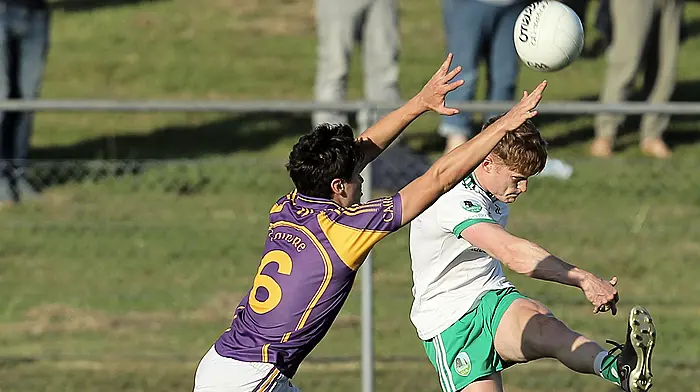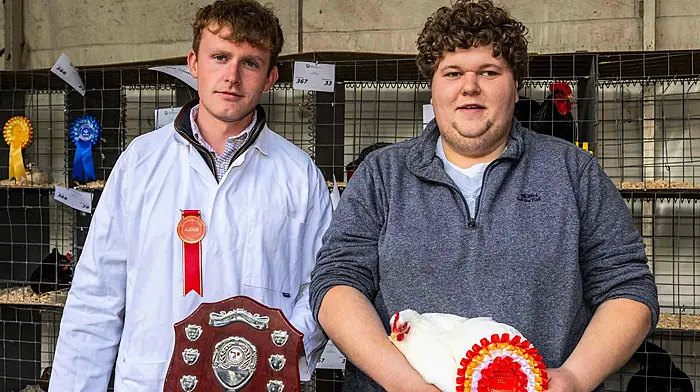THE long waiting lists for dental treatment for children in West Cork are quite shocking. In the past, children saw the dentist in first, third and sixth class. Currently, only children in sixth class are being offered an appointment.
The fact that so many young children are currently excluded from the scheme will have major repercussions in years to come. While most Irish people have a casual relationship with their teeth, many don’t realise that ignoring issues can lead to very serious consequences.
Failing to treat teeth and gum problems in youth can lead to a wide-ranging impact on general health in later life, from a risk of Alzheimer’s, to diabetes and cardiovascular disease.
In short, the lack of early childhood dental care can lead to problems that will need much more serious treatment down the line. If children are not getting access to early diagnosis of issues, or prevention facilities and intervention options, they may need otherwise-avoidable extractions as young adults.
The waiting list data released to Fine Gael’s Tim Lombard in the Seanad last week by Minister Mary Butler is quite shocking. She said that in the Cork and Kerry region, as of last June, while 860 patients had their orthodontic needs assessed in the first six months of the year, a whopping 2,900 patients were still waiting on an assessment. And while 1,937 patients were in active treatment at the time, there were 2,600 patients waiting to start treatment at the end of June 2023.
By ‘patients’ of course, the HSE means young children and teenagers. And these orthodontic figures refer to quite invasive dental works, so not just basic dental treatment. It was also revealed this week that just 2.6 dentists are working in the region now, with a number of local clinics having closed in recent years.
The HSE says a lack of private dentists participating in the scheme is the problem, because there is an embargo on recruitment of their own staff. But surely that is the role of the HSE – to ensure they do have enough dentists participating.
And if private practice dentists are not interested, or are pulling out of the scheme, as the figures show, then the HSE must urgently ask itself why, and does it need to make exceptions to the embargo rule for services where here is no ‘plan B’.
While young children are being denied a fairly basic service – dental checks before the age of 10 or older – the country seems to be able to splash the cash on other facilities for our nations’ children – like the ridiculously over-budget Children’s Hospital in Dublin.
The lack of an adequate dental service for the children of the south west was highlighted, ironically, in a week in which the overspend on the national hospital was also in sharp focus.
On Tuesday the government announced that it had approved increases to the budget sanctions for the Dublin-based hospital. This brought the total approved budget to €2.24bn – up from the previously approved €1.73bn.
While the new hospital is being described as a state-of-the-art campus, that is little consolation for any child in the south west who has to wait for almost a decade for their first proper dental assessment.
We were told that the revised budget for the Dublin hospital follows ‘significant work by the National Paediatric Hospital Development Board (NPHDB), Children’s Health Ireland (CHI), the HSE and officials in the Department of Health, along with the Department of Public Expenditure, NDP Delivery and Reform.’
It is only a pity that the same effort and focus is not being put into all the medical services required by our nation’s children.
Another week, another RTÉ report
ANOTHER week, another report on RTÉ. Well, this week it was the same report, only this time with names added. The farce that has been unfolding at our State broadcaster for many months appears to go from bad to worse. With every new report issued or statement made, expensive consultants and advisors are in the background, no doubt generating more bills to be paid. It’s hard to imagine how the organisation will ever return to the cherished place it once held in the nation’s hearts. It’s even more difficult to see how it can convince those who have opted not to renew their TV licence that it’s a service worth paying for, despite the wonderful work continuing to be produced by its many dedicated staff. The sooner a new method of funding the Montrose media house is found, the better.










